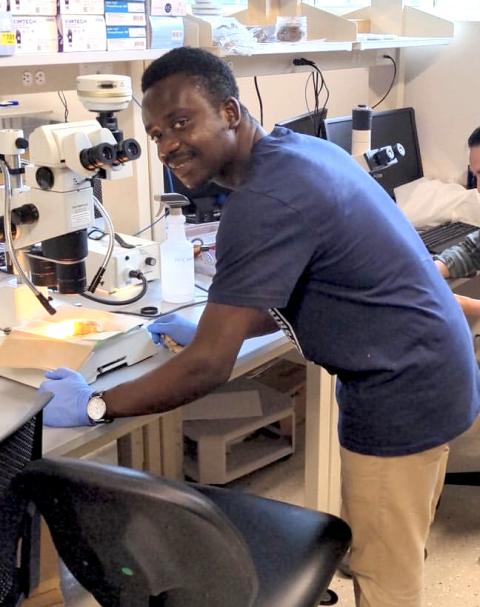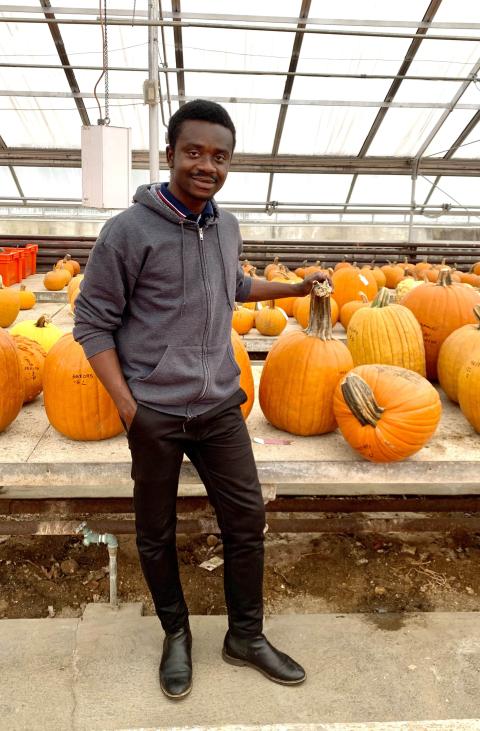
Joshua Addo is a doctoral candidate in the agricultural sciences Ph.D. program. He is from Ghana, where he earned both a bachelor’s degree and master’s degree in botany from the University of Ghana. When Joshua isn’t working toward his degree, one of the things he enjoys is collecting and photographing mushrooms.
COLSA: How would you explain your discipline and/or research to a non-scientist?
Joshua Addo: I'm passionate about finding environmentally friendly ways to protect plants against diseases, particularly cucurbit crops like pumpkins and squashes. Instead of relying on chemical pesticides, I focus on a more sustainable approach. I work on breeding these plants to be naturally resistant to diseases, which means they can defend themselves without the need for harmful chemicals.
By doing this, we can ensure healthy crop growth, higher yields and safer produce for consumers while reducing the impact on the environment. In essence, I'm working to make cucurbit farming more resilient and sustainable, benefitting both farmers and the planet.
COLSA: What do you wish your colleagues/friends/family knew about your work?
Joshua: I do not want us to compromise the future to feed the present. So, my work is not just about improving crop yields but also about promoting healthier and more sustainable agriculture. By breeding cucurbit crops to resist diseases, we reduce the need for chemical pesticides, which can harm the environment and human health. This research contributes to more responsible farming practices and helps ensure a safer and more abundant food supply.

COLSA: Why is your research important?
Joshua: My research is important because, it will help safeguard our food supply, protect our environment, and promote healthier, more sustainable agriculture for the long term.
COLSA: What do you consider your biggest challenge?
Joshua: One of my biggest challenges in this research would be staying ahead of rapidly evolving plant pathogens. Pathogens can quickly develop new strains or become resistant to previously effective control methods. Adapting breeding and resistance strategies to keep pace with these changes is a significant challenge. Additionally, ensuring that the newly developed crop varieties are not only
disease-resistant but also maintain or improve other desirable traits, such as yield, taste, and shelf life, can be complex and time-consuming.
COLSA: What drives you?
Joshua: The need to combat food security and food safety issues but do so in a way that preserves the health of the environment, the resilience of ecosystems, and the ability of future generations to meet their own food requirements. I want to make a positive impact to add to the greater good.
COLSA: What are you most proud of?
Joshua: I am most proud of my resilient nature.
COLSA: Why did you choose UNH?
Joshua: I chose UNH because of it ranked among the best in the area of sustainability. So, it aligns well with my research focus on sustainable agricultural practices.
COLSA: What do you plan to do with your degree?
Joshua: I plan to be researcher and promote agricultural practices and policies in developing countries.
Learn more